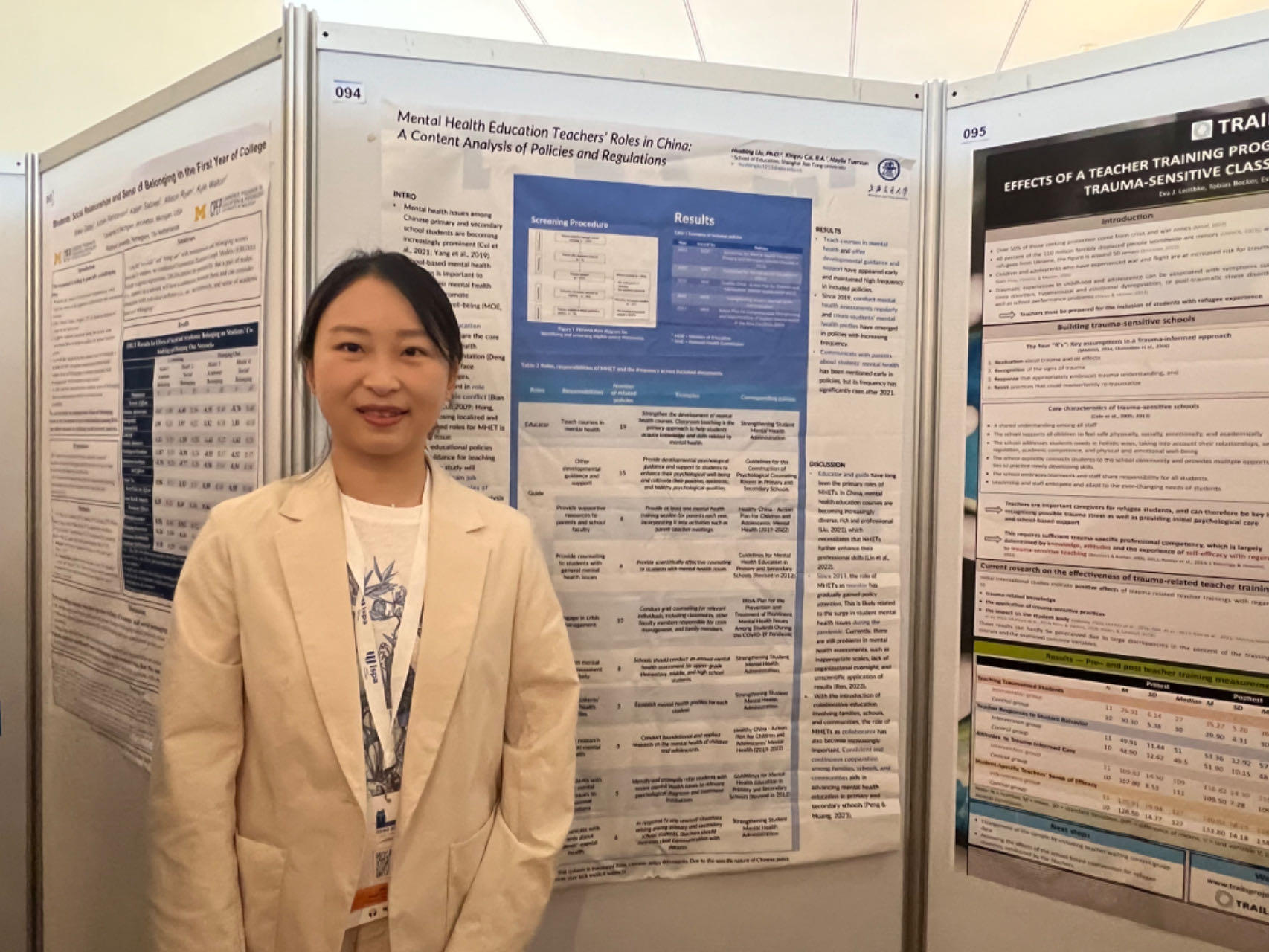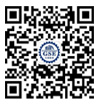Recently, Assistant Professor Dr. CHEN Lingjun and Dr. LIU Huabing from the Center for School Mental Health Research at the Shanghai Jiao Tong University School of Education attended the 27th Biennial Meeting of the International Society for the Study of Behavioural Development (ISSBD 2024) and presented their studies. ISSBD 2024, a prestigious conference in the field of behavioral development, was held in Lisbon, Portugal from June 16 to 20 this year. The conference attracted nearly 1,500 participants from various countries around the world.
Dr. CHEN Lingjun organized a symposium titled 'The Interplay of Chinese Students’ Mental Health Challenges and Social Development.' This symposium included four oral presentations, aiming to reveal the unique challenges and resources affecting the social development and mental health of Chinese students at different educational stages, while stressing the need for culturally sensitive and stage-specific educational strategies and support systems. Drs. CHEN and LIU presented their findings at this symposium. Participants showed great interest in the symposium, and there were lively discussions after the four presentations.

Dr. CHEN Lingjun’s oral presentation is titled “Affiliation with aggressive peer groups, autonomy, and adjustment in Chinese middle and high school students.” This study examines the relations between peer group-level aggression and social, behavioral, school, and psychological adjustment, and the moderating role of individual autonomy among Chinese adolescents. Participants include Grade 7 and Grade 10 students from six public schools in China. Data were collected from multiple sources, including self report, peer nominations, teacher ratings, and school record. Results show that group-level aggression is positively related to maladjustment in social, behavioral, and academic domains. The associations between group-level aggression, deviancy, and academic functioning are moderated by individual autonomy, with less negative impact on those higher in autonomy. These findings have implications for parents, educators, and professionals working with adolescents in aggressive peer groups.
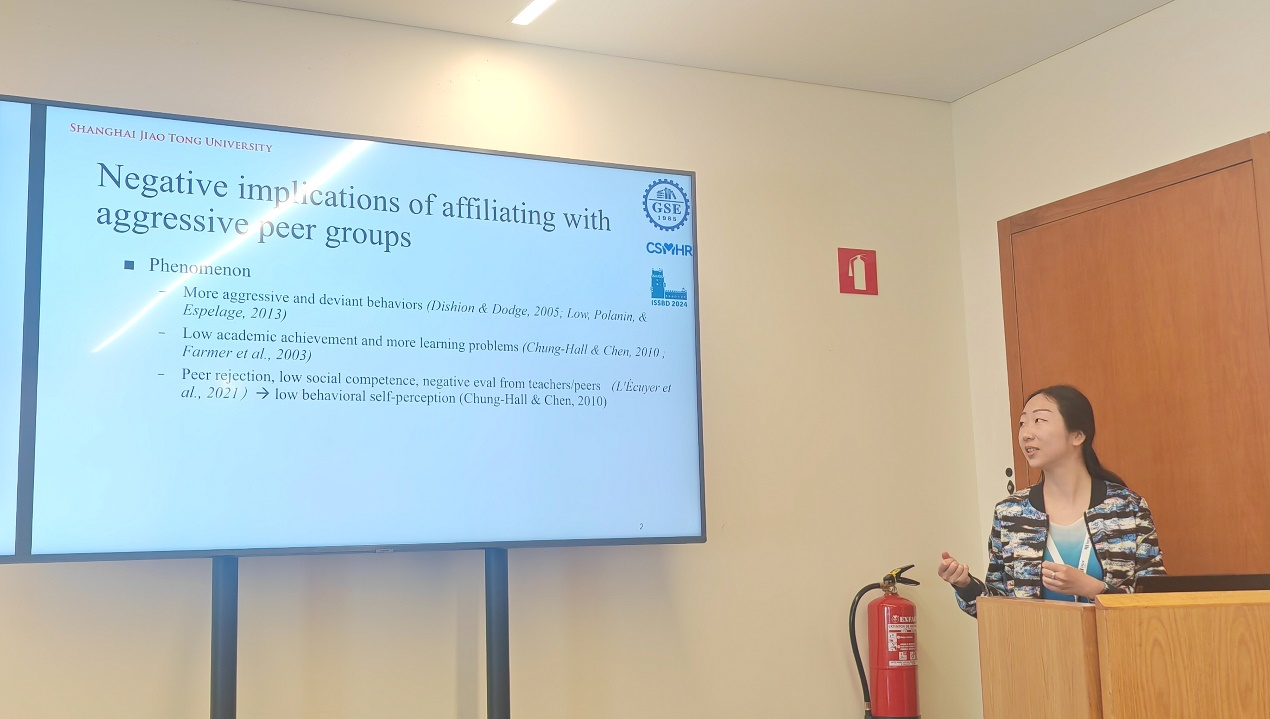
Dr. LIU Huabing's oral presentation is titled "Chinese doctoral students and psychological well-being: A systematic review and meta-analysis from 1990-2023". The student collaborators for this presentation are graduate student GAO Yanmin and undergraduate student Nayila TURSUN. This study focuses on the psychological well-being of doctoral students in China, identifying 35 relevant publications that meet the selection criteria. The research uses content analysis methods to code and summarize the research focus, trends, methodologies, and related conclusions regarding the psychological well-being of Chinese doctoral students. For research questions that received more attention and inconsistent conclusions in the literature, this study also employs meta-analysis to further analyze and summarize the characteristics of Chinese doctoral students' psychological well-being, interpreting them from cultural and social perspectives. Finally, the study provides suggestions for future research directions on the psychological well-being of Chinese doctoral students.
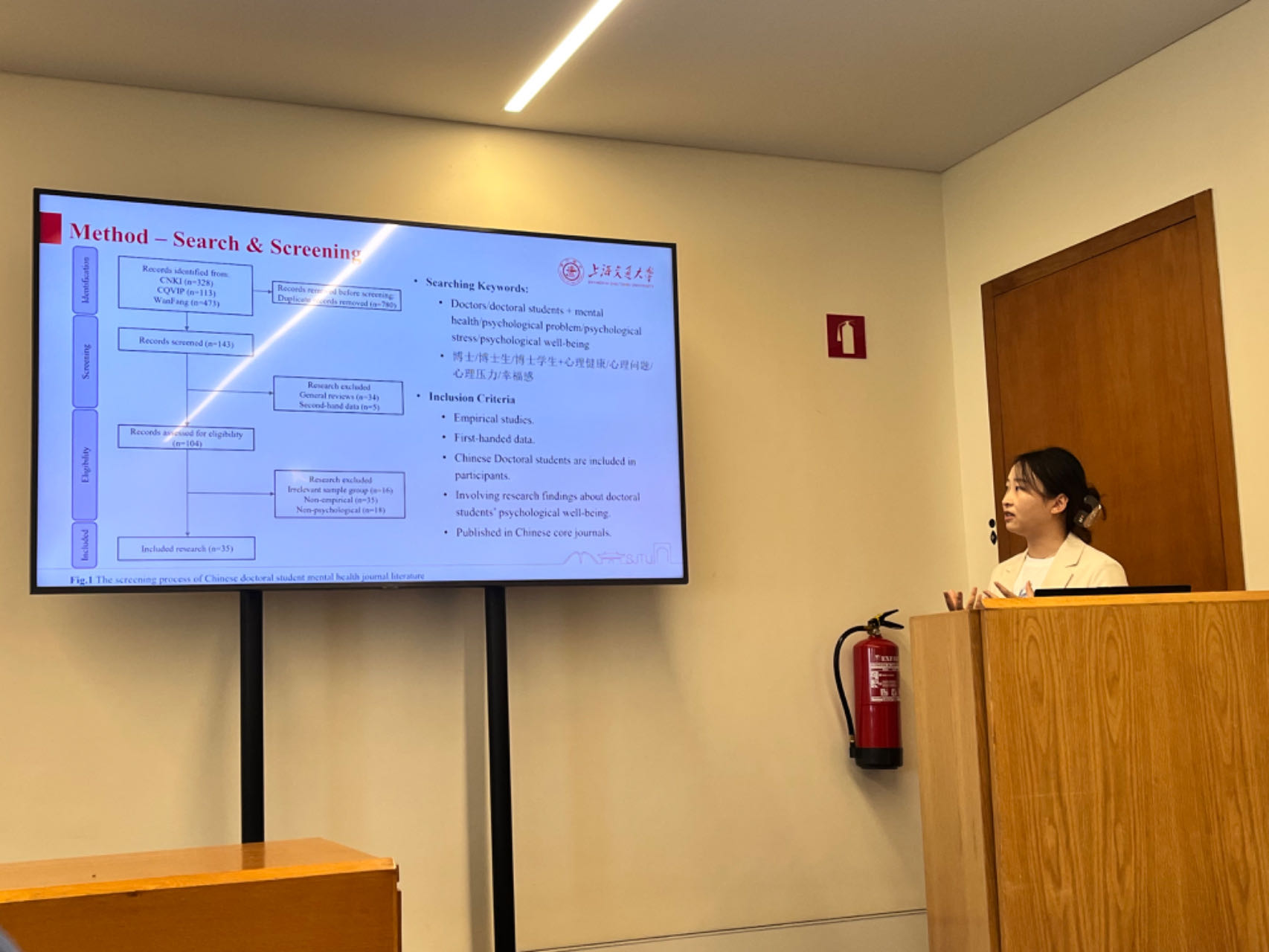
Additionally, Drs. CHEN and LIU presented their other research through posters at ISSBD 2024. The poster presentation by Dr. CHEN Lingjun, entitled “A scoping review on the impact of expressive writing on academic performance,” features undergraduate student ZHUO Dongni from University of Washington as the second author. The present study employs a scoping review approach to explore the impact of EW on academic performance. Through a keyword combination search, a total of 181 records were retrieved through the database. After selection based on inclusion and exclusion criteria, 19 studies were included in the review. Results indicated a positive relation between EW and academic performance. Additionally, studies vary in terms of intervention design, outcome selection, and study design, rendering the inference of the mechanism challenging. In conclusion, while existing literature suggests the benefit of EW, it also underscores the need for theory-based, methodologically rigorous, and long-term research to deepen our understanding of its role in student well-being and academic performance.
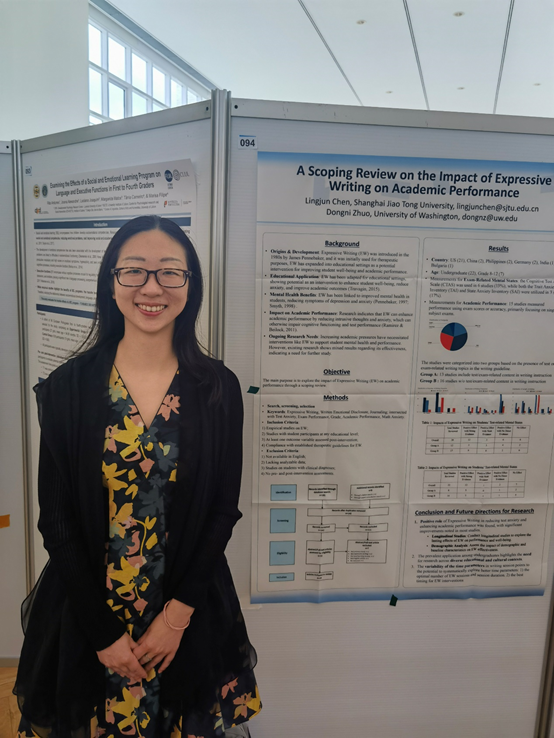
The poster presentation by Dr. LIU Huabing, entitled "Mental health education teachers' roles in China: A content analysis of policies and regulations," features graduate student Cai Xingyu as the second author. This study aims to address the ambiguity surrounding the roles of mental health teachers in China through a comprehensive analysis of policy requirements. Methodologically, the research adheres to the PRISMA framework for identifying pertinent mental health policies. Subsequently, employing content analysis, the study systematically codes and synthesizes the roles and responsibilities ascribed to mental health education teachers in their professional capacity. Additionally, it quantifies the frequency with which these roles and responsibilities are cited within the policy documents. The poster garnered significant attention from international researchers, stimulating interest in China's mental health education teachers and the broader institutional framework of school-based mental health education in the country. This interdisciplinary approach bridges policy studies with educational psychology, offering valuable insights into the evolving landscape of mental health support in Chinese educational settings.
